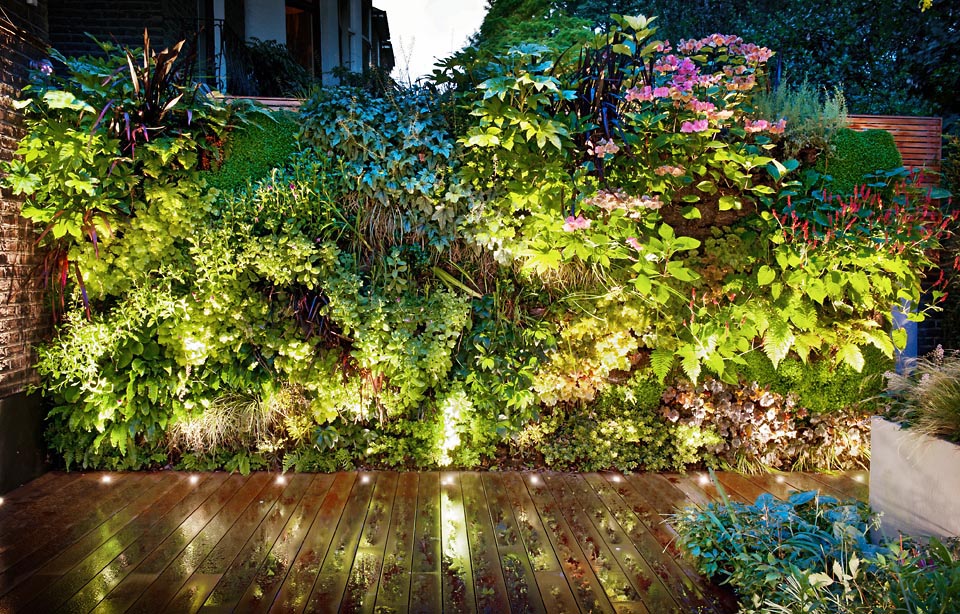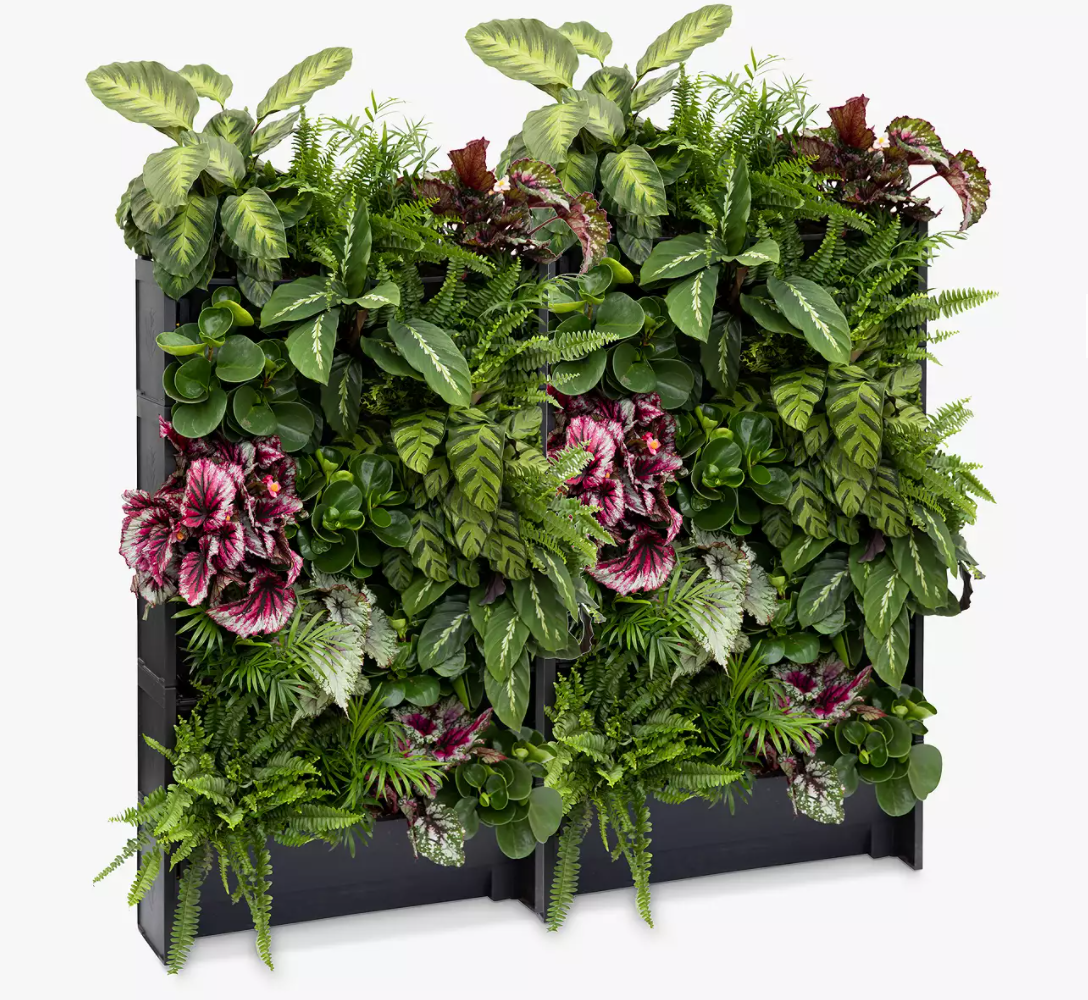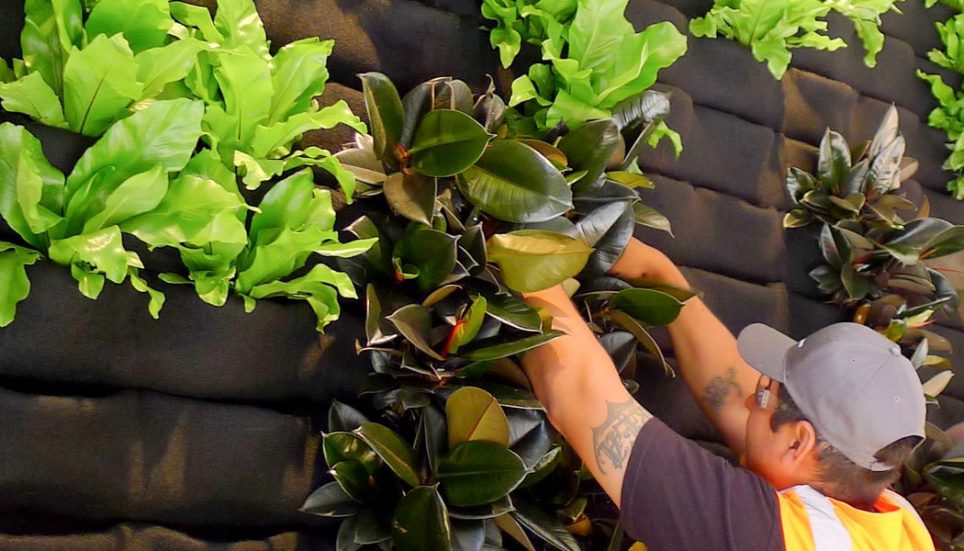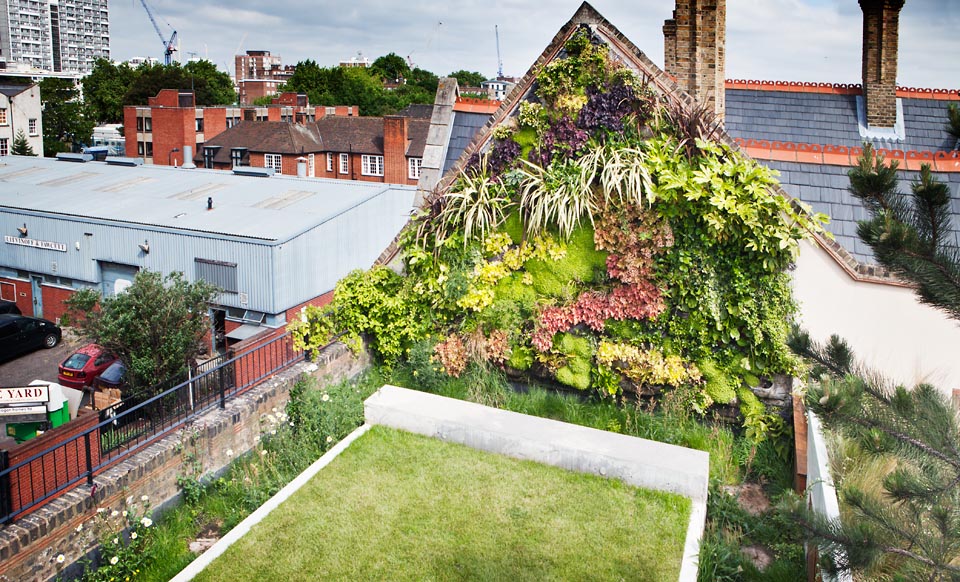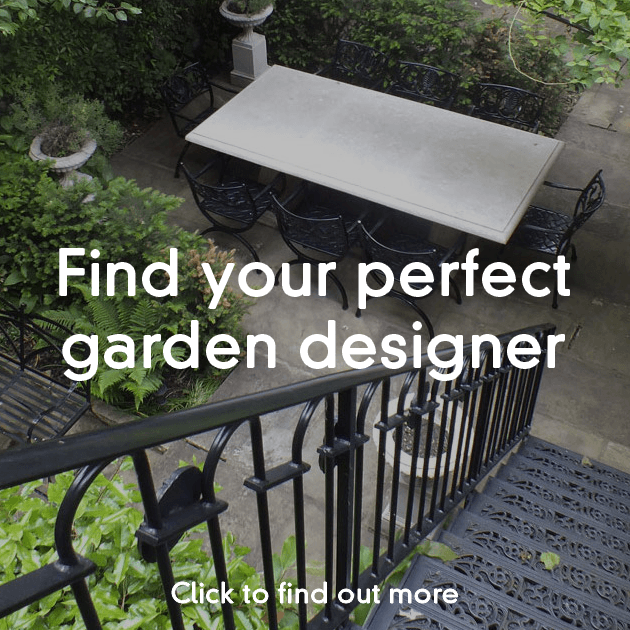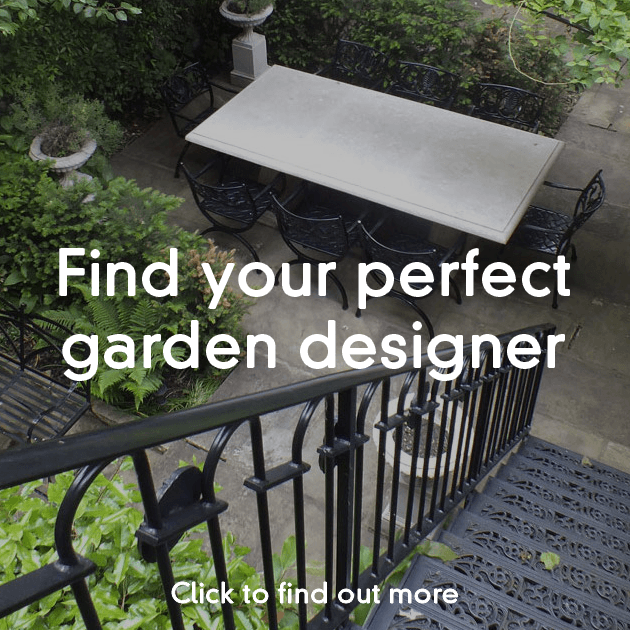What is a living wall / green wall?
A green wall or living wall is a structure that has plants growing directly from it. It’s different to a vertical climber whose roots are in the ground/pot and only use the vertical structure for support. The greenery is planted directly into the wall itself (or within containers/mats fixed to the wall) and, because of this, they usually also have their own irrigation system.
Living wall systems – interior and exterior
The plants in your living wall will all need something to grown in/root into and there are a few alternatives:
A system of concealed pots, boxes or troughs
Containing a growing medium (e.g. soil, stones). This internal living wall system from John Lewis is an example of this. This one, which is just over 1 m2 including plants costs £400:
Mat systems made of fibre or felt
which the plants can root into directly. This one is used internally in children’s museum in Canada.
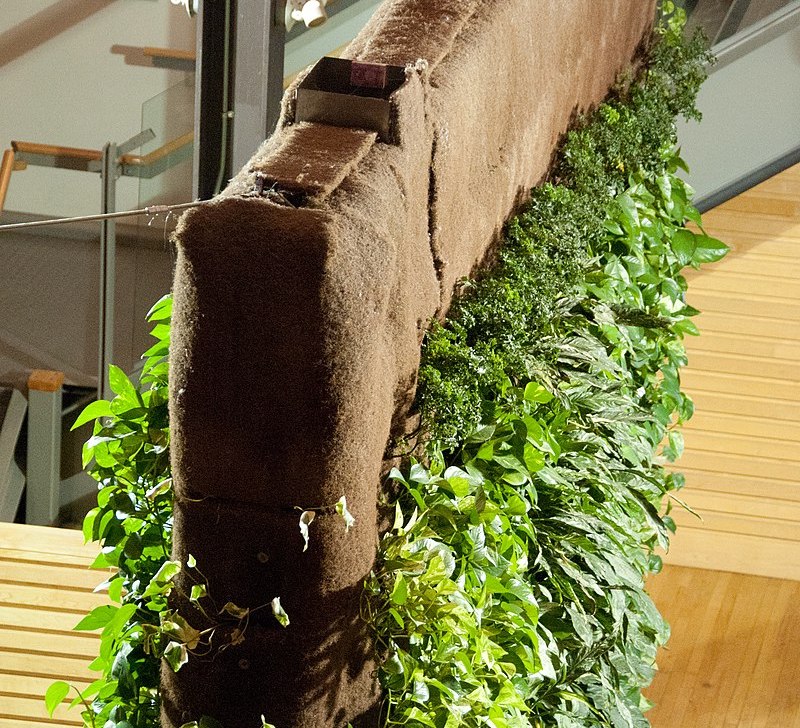
Modular felt systems
These combine features of both loose and mat media, such as this felt pocket system seen below from Florafelt, where the pockets contain a growing medium (e.g. soil/stones) and the roots can grow into the felt.
Benefits of an indoor living wall system
Green walls have become very popular in an indoor setting. Not only do they create visual interest, they have a biophilic effect on the occupants. Bilophilia is our innate connection with nature. The mental health benefits – making us happier, less stressed and more productive – are well documented.
Other great benefits of an indoor green wall include improved acoustics and thermal insulation.
Unlike an external green wall, you have more flexibility of plants as you can choose, for instance, tropical plants or those that don’t otherwise thrive in our climate.
Benefits of an exterior living wall system
The benefits of an external living wall can be felt particularly in built-up urban environments. Instead of using a man-made, hard surface, a living wall can provide relief, visual interest, and the biophilic effects described above.
They can also enhance the thermal and acoustic performance of space internally, by providing natural insulation.
How long does a green wall take to grow?
One of the big advances of a green wall over a climber is that they can be pre-grown and so your wall will look well established immediately. However, where the planting may start by looking modular/uniform, over time the plants will entwine and mix together to give a more natural look.
What is an active green wall?
An active green wall or smart wall usually refers to an indoor green wall to maximise the natural effects on the building’s inhabitants. It uses AI and sensors to automate and monitor the wall, enhancing the visual and biophillic effects. This can also include enhancing the natural purification and air humidification.
Here are some examples of green walls from the garden designers on Design for Me.
Design by Mike, garden designer from Shropshire, West Midlands. Click on the image to see more and shortlist them for your home project.
#gardendesign #gardeninspiration #gardenlove #gardenideas #gardens
Design by Adam, garden designer from Islington, London. Click on the image to see more and shortlist them for your home project.
#gardendesign #gardeninspiration #gardenlove #gardenideas #gardens
Do you need a designer for your home or garden project?
Follow Design for Me’s board Garden Ideas on Pinterest.
